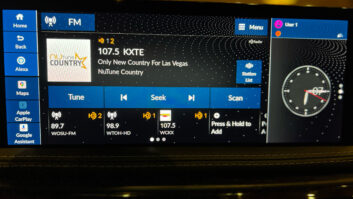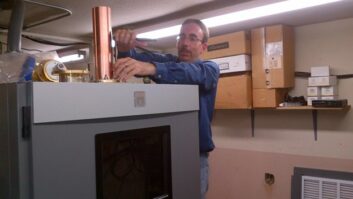HD Radio capability would not be mandated in future satellite radios from a combined Sirius/XM. But the capability wouldn’t be excluded, either.
That’s the way I hear it from commission staff and how I read what the FCC calls “voluntary commitments” agreed to by the satcasters in meetings with the chairman before he left for Asia. (We’d describe them as “conditions.”)
According to the initial list from the chairman disseminated to reporters, interoperable radios would need to be ready within one year of merger approval. While HD-R inclusion was not specified, according to an FCC staffer, a manufacturer could decide to include an over-the-air component of any future sat rad receivers and include IBOC reception as part of that.
Drilling down further into more detailed descriptions of the new promises the satellite companies included in filings this week:
If combined, XM/Sirius pledge to permit “any” device manufacturers to develop equipment that can deliver the satellite service. Manufacturers will able to incorporate in sat rad receivers “any other technology that would not result in harmful interference with the merged company’s network, including hybrid digital (HD) Radio technology, iPod ports, Internet connectivity or other technology,” wrote representatives of both companies.
They pledged not to enter into agreements that would bar a car manufacturer or other third party from including “non-interfering HD Radio chips, iPod compatibility or other audio technology” in a car or audio device.
Within a year after a merger, the companies would offer their intellectual property (other than chipset technology, which includes encryption and conditional access keys) to third parties for licensing to make and distribute equipment compatible with either the Sirius or XM systems or with both. Also within a year, a merged Sirius and XM would offer an interoperable aftermarket tuner for sale at retail.
So to sum up, the decisions about which features beyond satellite radio reception to include in new sat rad tuners would be up to manufacturers. (Which is how things work now; so for HD Radio proponents, their technology would neither lose nor gain, in theory.)
As for timing, the chairman said he could support the merger and floated this list of conditions among his colleagues like a trial balloon before he left for Asia.
The merger analysis, including a decision on whether to overturn the rule that there must be at least two sat rad companies, is circulating among the other commissioners. They can vote for or against the items as a whole, or in part, or make changes to the conditions. Whether the merger will be voted up or down, and what form any conditions might take, are up in the air. It’s not clear if there are enough votes for passage.







